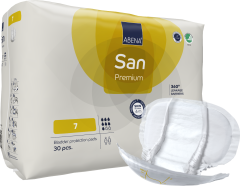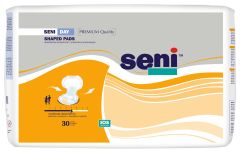Accidental Bowel Leakage (ABL) is Surprisingly Common Study Shows
This shows while accidental bowel leakage is a common problem, it is not a commonly talked about problem. And that is a whole other problem.
ABL is unexpected, and happens at inconvenient times. For most it is not severe; in a study published in the journal Digestive Diseases and Sciences, it was reported that in the U.S., 7.4% of adult men and 6.9% of adult women suffer from minor fecal incontinence defined as staining underclothes or leaking or losing less than 2 teaspoons of stool. Ninety percent of people with ABL experience light to moderate leakage. But that does not mean it is not inconvenient, frustrating, and bothersome.
ABL is often related to problems such as IBS, obesity, diabetes, menopause, prostate treatment, factors related to aging, and even childbirth. Many of the cases of ABL can be treated and corrected, or at the very least symptoms improved, if treatment is sought quickly.
It is time to change the statistics. It is time to speak up. Talk to your healthcare provider. You are not alone. Many individuals, particularly women will experience ABL before age 60. And there are things that can be done to improve the symptoms for all types of ABL. But not if you don’t seek treatment.
Despite the personal nature of ABL, it is time to start a conversation so the symptoms can be managed, and the problem addressed. It will not go away on its own. The treatment options vary from case to case, and depend on the cause and severity. For some a change in diet is all it will take to improve symptoms. For others medication, surgery, or muscle exercises may be required.
Your healthcare provider can help to determine the cause. Whether that is muscle damage from childbirth or a surgery, or because of chronic diarrhea, or something else entirely, tests can be administered to pinpoint. And a plan to correct the problem can be put into place. There are steps that can help people live more comfortably, have more control, and live well!
Abena Abri-San pads are highly absorbent yet discreet pads for management of moderate to heavy incontinence.
Seni shaped pads are highly absorbent yet discreet pads for management of incontinence.




